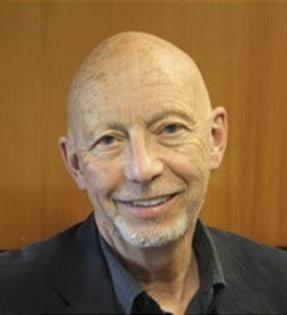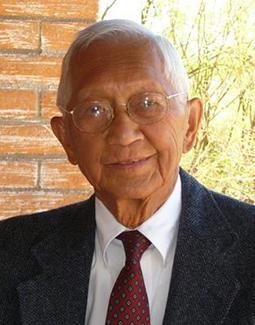AME Chuan F. Chen Memorial Lecture: Paul Linden

Thursday, February 23rd, 2023 - 4:00 p.m.
Paul Linden
Director of Research and G.I. Taylor Professor Emeritus of Fluid Mechanics
Professor, Department of Applied Mathematics and Theoretical Physics
University of Cambridge
"The Stratified Inclined Duct: What We Have Learned About Stratified Turbulence in a Maintained Shear Flow"
AME Lecture Hall, Room S212 | Zoom link

Abstract
The stratified inclined duct (SID) is a relatively new experimental paradigm that produces a sustained shear flow between two counterflowing layers of fluid supplied by reservoirs at each end of the duct containing fluids of different density. The duct can be tilted at a small angle θ to the horizontal and, for a given fluid, the flow is determined by two nondimensional parameters θ and the Reynolds number. Dr. Linden has observed four different flow regimes in SID: Laminar when the interface between the layers remains undisturbed, Holmboe characterised by sharp cusped waves on the interface, Intermittent when the flow has bursts of turbulence followed by relatively calm periods and Turbulent when the turbulence occurs throughout the duct and is sustained in time. The laminar regime occurs at low Re and θ, and transitions to the other regimes occur successively as Re and θ increase, so SID allows a systematic study of the different regimes. One of the most important questions in stratified turbulence is the efficiency with which the fluid is mixed.
When the stratification is stable, with density decreasing with height, work needs to be done against gravity to move light fluid downwards and dense fluid upwards so that irreversible mixing can occur. The 'tax' that this irreversible mixing imposes on the kinetic energy of the flow, the so-called 'mixing efficiency', is important to parameterise mixing in ocean and climate models. In this talk Dr. Linden will discuss the philosophy behind SID and explain why the experiment is relevant to this issue, particularly in the context of the energetics of the flow. He focus first on the self-organisation properties of the flows, wherein more strongly turbulent flows tend to an asymptotic state characterised by a uniform gradient Richardson number of order 0.1-0.2 across the shear layer. He then summarise our results on turbulent energetics and mixing statistics. We derive the kinetic and scalar energy budgets and explain the specificity and scalings of SID turbulence. We assess the relevance of standard mixing parameterisation models, and we compare representative values with the literature. The dependence of these measures of mixing on controllable flow parameters provides asymptotic estimates that may be extrapolated to more strongly turbulent flows. Complementing the experiments we introduce the first accurate 3D DNS for SID. Implementing a suitable forcing method and boundary conditions allow us to maintain steady exchange flow for an arbitrarily long time at a minimal computational cost. With the newly developed numerical model, we explore the diverse transitions in SID from a numerical perspective.
BIOSKETCH
Dr. Paul Linden is Director of Research and the GI Taylor Professor Emeritus of Fluid Mechanics in the Department of Applied Mathematics and Theoretical Physics, and Professorial Fellow Emeritus of Downing College, University of Cambridge. He is also the Blasker Distinguished Professor Emeritus of Environmental Science and Engineering in the MAE Department Engineering at UC San Diego. At UC San Diego he was chair of the MAE department (2004-2009), the Director of the Environment and Sustainability Initiative (2007-2009) and the founding Director of the Sustainability Solutions Institute (2009-2010). He is a Fellow of the American Physical Society, the Royal Meteorological Society, Academia Europaea, the Institute of Mathematics and its Applications, and the Royal Society.
Dr. Linden is a fluid dynamicist and his research is concerned with fluid flow in the environment and in industry. He uses laboratory experiments and theoretical models to elucidate the relevant physical processes underlying these flows and to provide predictions of their properties that can be applied in practice.
He currently leads three projects. An ERC Advanced Grant on Stratified Turbulence and Mixing Processes (STAMP) 2017-2023, a NERC Network on Tackling Air Pollution at School (TAPAS) 2020-2024 and a project on Covid-19 transmission in schools (CO-TRACE). He led the Royal Society RAMP programme on airborne transmission of Covid in 2020.

Chuan F. Chen Memorial Lecture Series
The Chuan F. Chen Memorial Lecture Series at the University of Arizona, established by the generous support of the Chen family (Frances, Peter, Ann, Paul, Yihua, Philip & Grace), remembers and celebrates the life of Chuan F. Chen (1932-2019).
Chuan F. "Tony" Chen, professor emeritus of aerospace and mechanical engineering at the University of Arizona passed away peacefully on August 17th, 2019. Dr. Chen was born in Tianjin, China, and came to the United States in 1950 to study mechanical engineering at the University of Illinois. After completing his MS Degree in 1954, he continued his graduate studies in aeronautical engineering at Brown University, earning his Ph.D. in 1960. In 1980, Tony and his family moved to Arizona, where he was head of the Department of Aerospace and Mechanical Engineering at the University of Arizona from 1980-89.
Dr. Chen made important and lasting contributions in a number of areas, ranging from aerodynamics to the stability of Taylor-Couette and time-dependent flows, to doubly-diffusive flows, the latter including solidification and geological fluid mechanics. Nothing delighted Dr. Chen more than finding something new and understanding it. He employed a mix of experimental and theoretical techniques, training many of his Ph.D. students in both. His work was recognized by election to Fellow status by APS, ASME, and AAAS. Tony received a distinguished alumni award from the Department of Mechanical Science and Engineering at the University of Illinois at Urbana-Champaign in 1982. He held visiting appointments at the University of Cambridge, NASA-Ames Research Center, the Australian National University, and in Karlsruhe. Dr. Chen also served as Director of the Fluid Dynamics and Hydraulics Program at NSF.
With The Chuan F. Chen Memorial Lecture Series we celebrate his life and remind ourselves his lasting contributions.

